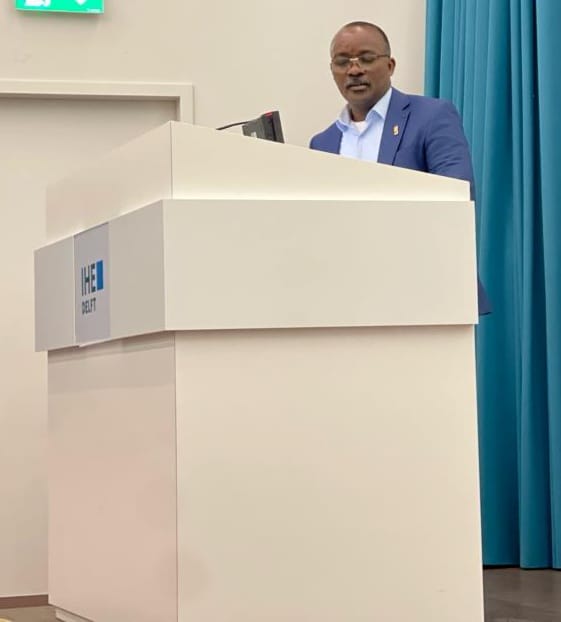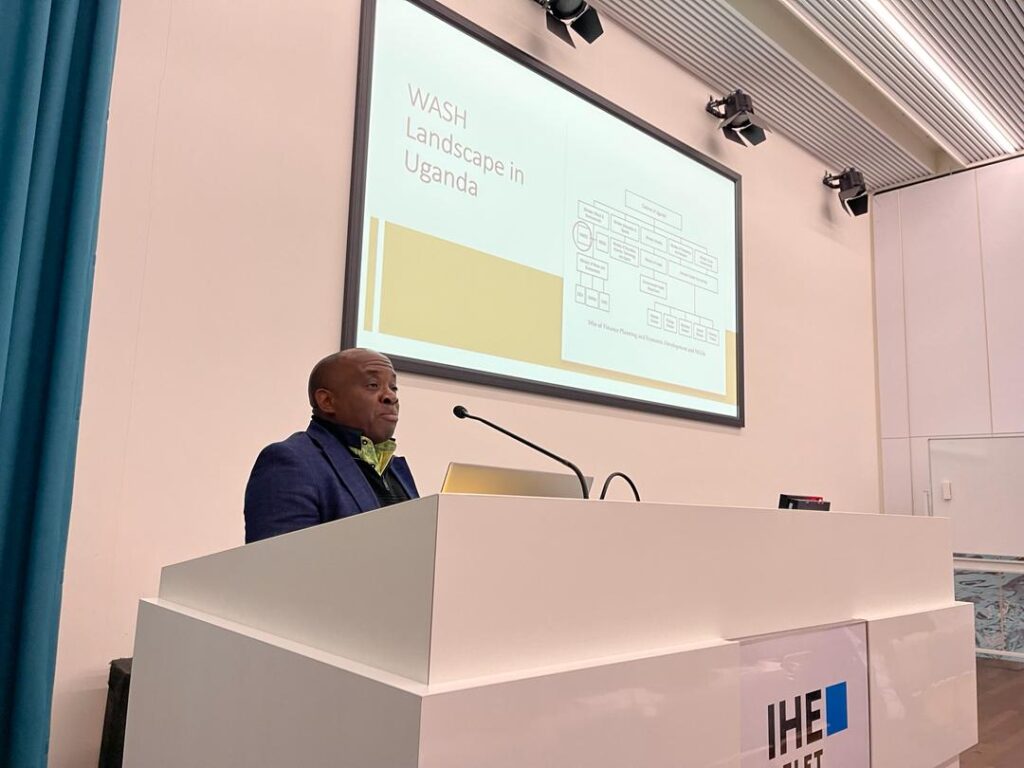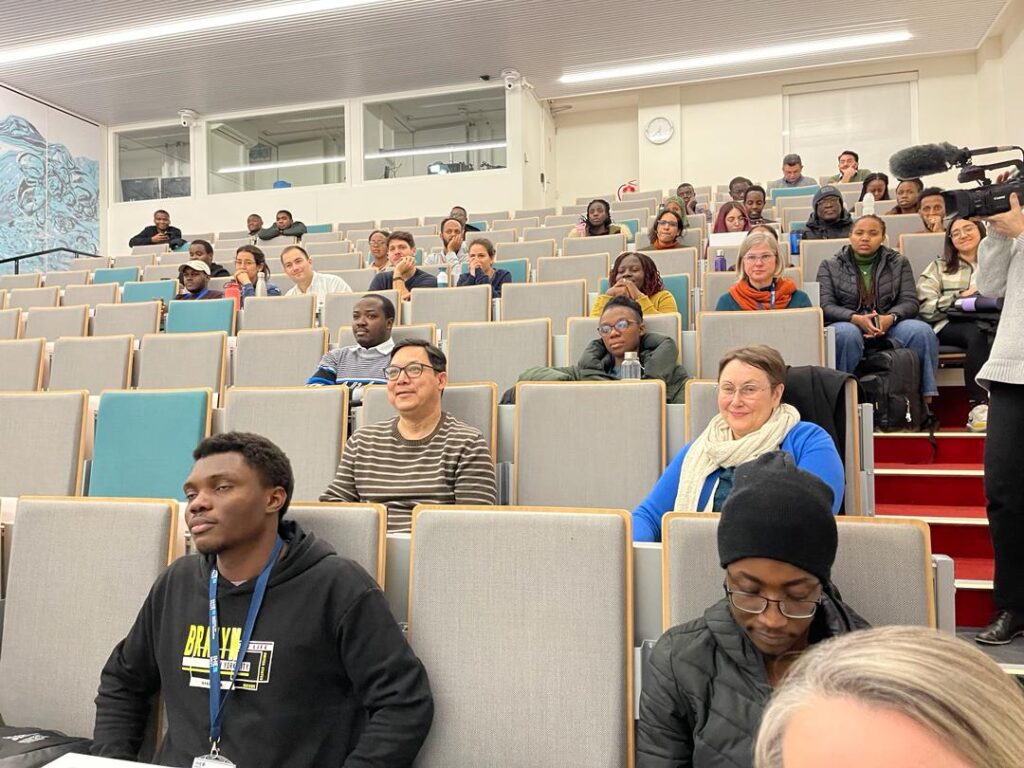
As is the case with any profession, in the realm of water and sanitation management, the quest for progress and innovation knows no bounds. Dr. Eng. Silver Mugisha, the Managing Director of the National Water and Sewerage Corporation (NWSC), embodies this relentless pursuit. With a wealth of experience and a passion for inspiring change, Dr. Mugisha recently graced the halls of the IHE Delft Institute for Water Education, where he shared invaluable insights on utility reforms with future leaders in the field.
Accompanied by Eng. Mahmood Lutaaya, the General Manager of Kampala Water, Dr. Mugisha drawing from his own experiences and the success story of NWSC, captivated his audience with a compelling narrative of perseverance and achievement, centered on financial autonomy, reform rationale, and collaborative partnerships.
Through thought-provoking anecdotes and real-world examples, Dr. Mugisha highlighted the importance of a subtle approach to reform. Rather than advocating for a one-size-fits-all approach, Dr. Mugisha stressed the importance of understanding the unique challenges and contexts of each region. Through tailored reforms and strategic partnerships, utilities can effectively address the root causes of water and sanitation issues.
He also emphasized the vital role of partnerships in driving meaningful change stressing that collaboration, is a strategic imperative for success. By forging alliances with government agencies, non-profit organizations, and the private sector, utilities can leverage expertise, resources, and support to amplify their impact and reach.

Eng. Mahmood Lutaaya further enriched the discussion by presenting NWSC as a case study on the role of utilities in sanitation innovation. Highlighting key performance drivers and innovative approaches, he emphasized the importance of a multi-layered strategy to tackle sanitation challenges in developing countries.
In a bid to enhance the students’ learning experience, Eng. Lutaaya showcased NWSC’s innovative initiatives, ranging from infrastructure development to leveraging technology for sanitation coverage. He highlighted the collective responsibility to address sanitation injustices and the significant role utilities play in this endeavor.
Following the presentations, a Q&A session provided an opportunity for deeper engagement, compelling Dr. Mugisha to shed light on NWSC’s measures for elevating service delivery, emphasizing expansion, capacity building, and strategic collaborations. He also clarified on NWSC’s approach to working with public sector organizations, highlighting stakeholder engagement and transparency as key principles.
Regarding water loss prevention, Eng. Lutaaya outlined NWSC’s strategies, including sensitization programs and partnerships with law enforcement agencies. When asked about accelerating global SDG targets, Dr. Mugisha stressed the importance of leading by example and reinvesting profits for service delivery.
In his closing remarks, Dr. Mugisha imparted invaluable advice to the students, underlining the importance of practical skills and a positive attitude in translating knowledge into proficiency.



